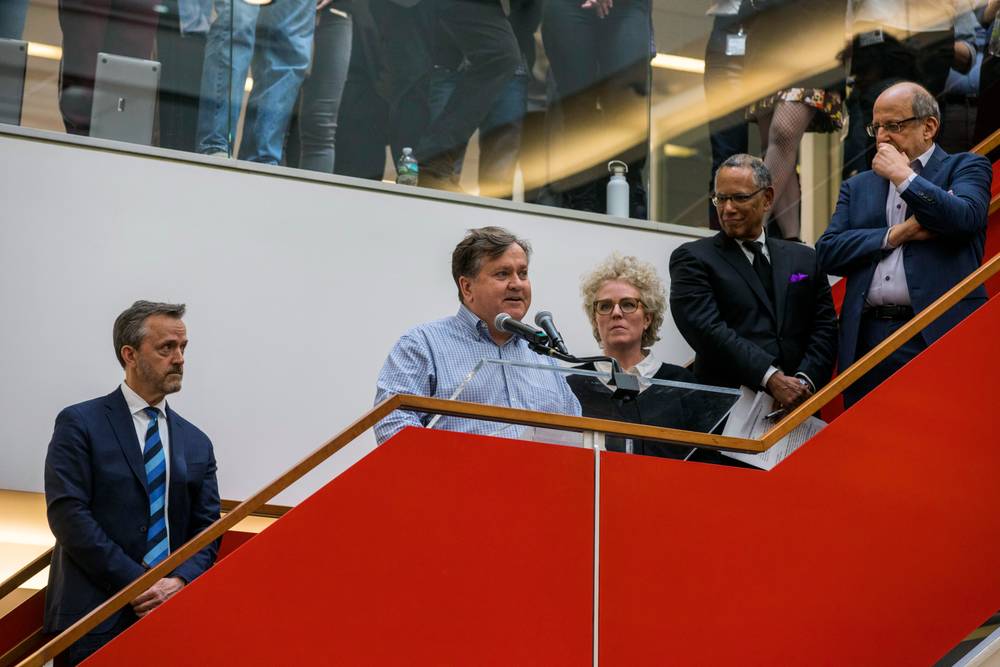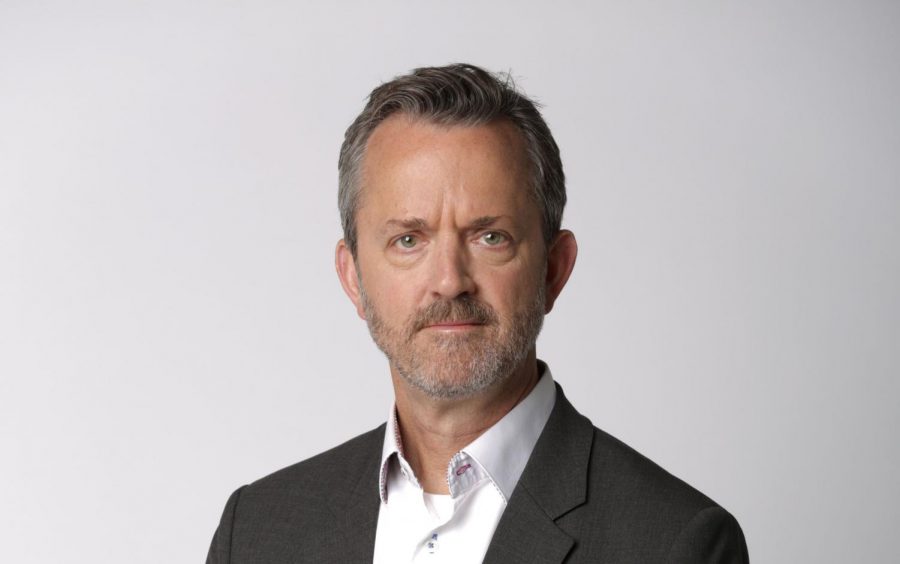Q&A: Pulitzer-winning New York Times reporter recalls time at Sac State
Buettner and two coworkers recognized for reporting on Trump’s finances
Courtesy of The New York Times
Pulitzer Prize-winning journalist Russ Buettner. The Sac State alumnus and former State Hornet writer won the award for his research into Trump’s finances for the New York Times.
April 20, 2019
Sacramento State alumnus and former writer for The State Hornet Russ Buettner just won the Pulitzer Prize for Explanatory Reporting. Buettner and two of his coworkers at The New York Times, David Barstow and Susanne Craig, were nominated for the award based on a series of articles that looked into President Donald Trump’s finances and the means through which he built his wealth.
RELATED: Sac State alumnus receives Pulitzer for investigating Trump’s finances
Question: What did you major in at Sacramento State, and did you always know you wanted to be a journalist?
Answer: I did not always know I wanted to be a journalist. I majored at first in English and it was when I took a news writing journalism class, I discovered I enjoyed that more. I liked doing that more than reading books by great writers and trying to critique them.
Q: How was your time on The State Hornet? Are there any memorable articles you would like to discuss?
A: I wrote for The State Hornet between 1989 and 1990. I got my first published piece at The State Hornet. My experience at The State Hornet was great, I discovered that I liked things that were very research intensive.
I remember an issue where there was someone on the student council, and issues with money and finances. I found that interesting, to get in more depth.
I had a great experience working with a woman named Jean Abbot who was also an editor at The Sacramento Bee. She is the one who introduced me to Missouri for graduate school, and helped me get a scholarship.
I remember like most people I was juggling a lot, I tended a bar, I was taking a full set of classes and writing for The State Hornet. It was really hard, I had a 25-30 week job, a full load of classes, and I wasn’t sleeping and eating well. That’s how you learn though, you get through it and you get better.
Q: How did your career take off upon graduating from Sac State?
A: A group of us guys went out to celebrate after graduating. We got a $16 bus ticket, and went to Lake Tahoe for a ski trip and just gambled away.
I remember laying in bed the next Monday not knowing what I was going to do, then I got a phone call from the Amador Ledger Dispatch in Jackson, California. I told him I would only be able to work there for 6 months because I had plans of going to Missouri for graduate school and he said I would rather have you for 6 months than not at all.
Story continues below photo.

Q: What led you to write for The New York Times?
A: I was following the next opportunity after graduate school, they give you the option to write for bigger newspapers for 6 months. I originally wrote for New York Newsday, then after three years it closed and I worked for The New York Daily News for 11 years. In that time period, The New York Times threatened to hire me, and I finally worked for them in 2006.
Q: What is the process of being nominated for a Pulitzer like?
A: You get nominated for it by your news organization, but it’s never something I’ve set out to achieve. There are some people who work just to win that prize, but that thought process doesn’t work for me. I think if you just care about current events, it reaffirms how much more amazing journalism is done every year.
Q: What interests you in the topics you chose to write about?
A: I had been brought on during the 2016 presidential campaign. A reporter I worked with named Dan Craig received (Trump’s) 1995 tax returns so we created a team that worked on that. March of 2017 after (Trump) had been elected, a former New York Times reporter received his 2005 return that ended up on Rachel Maddow.
Then we started looking into how much money his father gave him, what were the ways he got it, and it led to new avenues that we stuck to everytime. Some people really trusted us, who took risks to provide things to us, so some of that information about how I got his tax returns I can’t talk about.
It started with digging up public records, and going back historically to property records. Donald Trump’s sister filed for two years and we could tell which ones were from Trump properties, and then it led to creating lists of people we wanted to talk to.
Each one of those turns yielded new results, new documents, the evidence and detail of this web of financial instruments that we were idolizing became more and more precise. We had a very cohesive narrative, with actual dollar amounts. The process took a year and a half.
We knew we had exhausted the ways we could think of, if we had gotten any more information it would have been a book. We spoke with Maryanne Trump, Robert Trump, and received an angry threat to sue from Donald Trump’s lawyers. We had over 100,000 documents that were financial records going back to the 1940’s.
Story continues below video.
Q: What advice do you have for aspiring journalists?
A: It’s important to figure out what it is that draws you to it. You are never gonna stop learning, you are never going to feel like you know enough, that’s part of the life long pursuit of journalism. Just figure out what motivates you, whether that’s a ballet critic, a sports critic or an investigative reporter. You are never going to stop trying to get better.
Q: Have you ever reached a breaking point? What makes the job stressful?
A: No. You are always going to have your office politics, and there will always be times it’s stressful because it’s a big place. There are a lot of smart people you are trying to impress and you’re on deadline. It can be disappointing if you haven’t quite got it yet, but it never stops being fun.
Q: Have you ever experienced the journalism high?
A: Most definitely. I feel like for me that comes before you write, when you are figuring out the important truth. It gets very thrilling when you are able to piece it all together.





























































































































